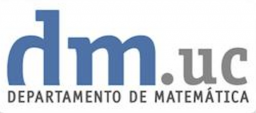The Master in Geospatial Information Engineering aims to train professionals with skills to collect, process and analyze geospatial data; management and provision of geospatial information; as well as the creation of applications and web services associated with this type of information.
Objectives
The learning objectives are focused on acquiring skills to respond to current market needs related to the use of geospatial data and information. It is intended that the MSc in Geospatial Information Engineering acquires competences for:
- Planning and execution of geospatial data collection with various technologies (namely the global satellite navigation system, total stations, photogrammetric and laser scanning systems or information made available voluntarily by citizens);
- Processing of geospatial data collected by positioning systems and optical, laser and radar sensors, namely multispectral images collected by sensors placed on spatial or terrestrial platforms, aerial or terrestrial photographs or clouds of 3D points collected with laser scanning systems;
- Conception of geographic information systems and geospatial data infrastructures;
- Integration of geospatial data into information systems;
- Exploitation and analysis of geospatial data;
- Quality control of geospatial information and cartographic products;
- Integrating geospatial intelligence into decision-making processes.
Professional Careers
The knowledge, skills and competences acquired by the Masters in Geospatial Information Engineering allow professional exits in the public and private sectors, in all contexts where geo-referenced information is required. This type of information is currently used in a wide range of areas related to, for example, Computer Engineering, Civil Engineering, Environmental Engineering or Geosciences. Applications in services involving geolocation, identification and monitoring of environmental phenomena or natural resources, forest and land registry, heritage management, Internet of Things (IoT), Smart Cities, Voluntary Geographic Information (GIS) and implementation and monitoring of structures are highlighted.
Program
The MSc in Geospatial Information Engineering Program offered by FCTUC is a 2-year course divided in 4 semesters that confers the Degree of Master of Science.
1st semester
- Georeferencing and Positioning (6 ECTS)
- Applied Remote Sensing (6 ECTS)
- Databases (6 ECTS)
- Digital Cartography (6 ECTS)
- Natural Risk Assessment and Management (opcional, 6 ECTS)
- Informatics, Systems and Programming (opcional, 6 ECTS)
- System Modeling and Analysis (opcional, 6 ECTS)
- Fluvial and Coastal Systems (opcional, 6 ECTS)
- Transportation and the Environment (opcional, 6 ECTS)
2nd semester
- Applications of Positioning and Navigation (6 ECTS)
- Digital Photogrammetry (6 ECTS)
- Programming for WebGIS (6 ECTS)
- Geographical Information Systems (6 ECTS)
- Geospatial Intelligence (6 ECTS)
3rd semester
- Land Information Systems (6 ECTS)
- Systems Integration (6 ECTS)
- 3D Modelling (6 ECTS)
- Plan of Dissertation, Internship or Project (6 ECTS)
- Image Analysis and Processing(opcional, 6 ECTS)
- Mobile Computing (opcional, 6 ECTS)
- Project Management (opcional, 6 ECTS)
- Information Systems Management (opcional, 6 ECTS)
- Integrated Water Resources Management (opcional, 6 ECTS)
- Emerging Internet Services (opcional, 6 ECTS)
4th semester
- Dissertation, Internship or Project (30 ECTS)
Admission Requirements
One of the following requirements must be met by the applicants for this Master program:
- Hold a BSc degree or legal equivalent;
- Hold a foreign academic degree after completing 1st cycle of studies organized according to the principles of the Bologna Process;
- Hold a foreign academic degree that is recognized as meeting the objectives of the Bachelor’s degree by the Scientific Council of the Faculty of Science and Technology;
- Hold an academic, scientific or professional curriculum that is recognized by the Scientific Council of Faculty of Science and Technology to attest the capacity to complete this cycle of studies.
Candidates should check the admission requirements available on the university's site, in addition to the information provided here.

